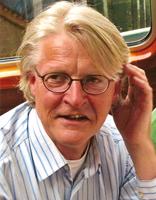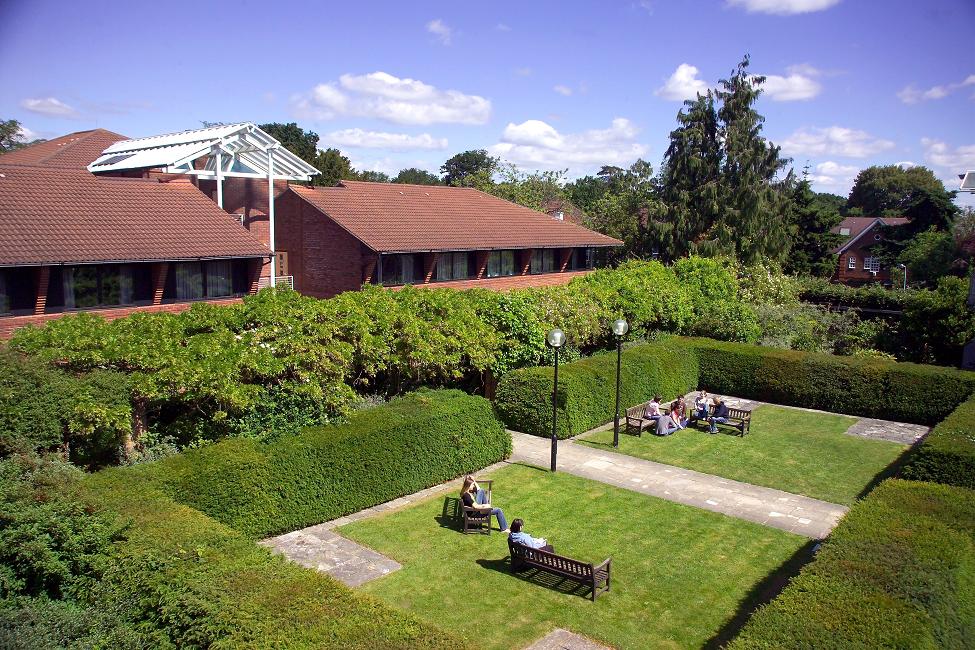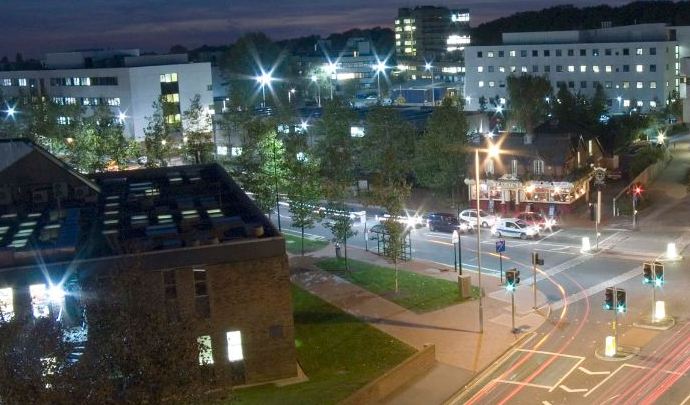Fourth meeting of the EARLI SIG 18 Education Effectiveness, Southampton, England, 27-29 August 2014
Marrying rigour and relevance: towards effective education for all
The relationship between research and practice has long been a key concern in education and the social sciences more generally. For the field of educational effectiveness, this issue is at the forefront even more, given that the very intention of EER has from its origins been not just to identify the characteristics of effective education, but to influence policy and practice for greater effectiveness. At the same time, the field has always striven to put our knowledge of educational processes onto a sound scientific footing by employing rigorous research designs and analytical methods, which have increased in sophistication over the years.
In contrast to the views of some critics of the field, we feel that this methodological rigour is essential to provide practitioners and policymakers with information that is sufficiently robust to be used as a basis for decision making, and the theme of this conference reflects this belief.
It is therefore the aim of this conference to explore ways in which we can continue to produce research that is both rigorous and relevant, and also look at ways in which complex methods, designs and findings can be communicated and co-constructed with practitioners and policymakers. As such we aim to build on traditional strengths of our field, while being aware of the challenges we face.
KEYNOTE SPEAKERS
Professor Sam Stringfield, University of Cincinnati

Sam Stringfield is the Director of the School of Education at the University of Cincinnati. Stringfield has spent three decades studying teacher-, school-, and system-effects on the academic and other achievements of students. His work focuses on students who are at risk of not thriving, and on the schools that serve large numbers of those young people. The author of over 150 articles, books and chapters, Stringfield has gathered data in over 25 states and nearly a dozen countries. His current research focuses on the steps schools and school systems can take in order to provide highly reliable educational services to all our children.
Professor Pamela Sammons, University of Oxford

Pamela Sammons joined the Department of Education, University of Oxford in October 2009. From 2004-2009 she was a Professor of Education at the University of Nottingham and a member of the Teacher and Leadership Research Centre (TLRC) there. Previously, Pamela was a Professor of Education at the Institute of Education, University of London and Coordinating Director of its International School Effectiveness & Improvement Centre (1999-2004). Professor Sammons has been involved in educational research for the last 30 years with a special focus on the topics of school effectiveness and improvement, leadership and equity in education. She has a particular interest in the evaluation of education policy initiatives including both formative and summative approaches.
Prof. Dr. Katharina Maag Merki, University of Zurich

Katharina is Professor of Education at the University of Zurich with a focus on the Theoretical and Empirical Studies of Educational Processes in Schools, President of the Swiss Society for Research in Education (SGBF) and member of the German Research Foundation (DFG) Review Board 109 “Educational Sciences” on “General and Subject-Specific Research on Teaching, Learning, and Qualification’’. Professor Maag Merki’s main research areas and Interests include empirical educational research, educational governance, competency development, research on school quality and school development. Since 2006, Prof. Dr. Katharina Maag Merki has been a professor for school pedagogy at the Teacher Training College in Freiburg/Breisgau.
Professor Roel Bosker, University of Groningen

Roel Bosker is a Professor of Education and Scientific Director at the University of Groningen. Professor Bosker’s previous positions include: Co-editor School Effectiveness and School Improvement; Member of editorial board in School Leadership and Management; Member of supervisory board ‘Koninklijke Kentalis’; Chair of advisory board in primary education of the Netherlands National Institute for Educational Measurement ('Cito') and a member of the Technical Advisory Group OECD-PIAAC. Professor Bosker’s research interests include evidence based education, achievement standards, inequality of educational opportunities, educational evaluation and multilevel modelling.
PAPER SUBMISSION AND DEADLINES
We invite you to submit a paper or poster or propose a symposium that is broadly linked to the theme of the conference or other aspects of Educational Effectiveness.
Paper submissions should be up to 2000 words, and contain the following elements:
- Title
- Abstract
- Introduction to the topic
- Theoretical framework
- Methodology (empirical studies)
- (Preliminary) Results
- Contribution to knowledge and or practice
Poster submissions should be up to 1000 words, and follow a similar structure.
Symposium submissions should be up to 4000 words and contain:
- Title
- Abstract
- Introduction to the topic
- Contribution to knowledge and or practice
- A short summary of each paper in the symposium
covering topic, methodology and key (preliminary) findings
Deadline for submissions is 30th April 2014.
Reviews will be completed by 31st May 2014.
To find out more, please visit the submission pages
VENUE The conference will take place at the University of Southampton, Southampton, United Kingdom.
The conference will take place in the Nightingale Building on Highfield Campus, a modern and well-equipped university building.
http://www.southampton.ac.uk/estates/ourestate/buildings/highfield/67.html
A map of the campus can be found here:
http://www.southampton.ac.uk/visitus/campuses/maps/highfield_3d_key.pdf
Nightingale building is number 67 on the map.
TRAVEL
Southampton is located on the South Coast of England and is well-served by transport infrastructure.
By Train: The nearest station to Highfield Campus is Southampton Airport-Parkway station, which is about ten minutes drive from the campus. The station benefits from particularly good connections with London. Trains from London Waterloo leave approximately every 30 minutes, with a travelling time of 1 hour 10 minutes. There are also connections from Birmingham, Manchester and the South-West as well as intermediate stations on these lines.
From the station it is possible to take either a taxi or Unilink bus U1C to Highfield Campus. Train timetables can be found here: http://ojp.nationalrail.co.uk/service/planjourney/search
Unilink bus timetables are here: http://www.unilinkbus.co.uk/service.shtml
By Air: Southampton International Airport is next to Airport-Parkway rail station (see above) and therefore similarly nearby the campus, and served by the same bus route and taxis. The airport has flights to and from a range of UK and European destinations. More information can be found here: http://www.southamptonairport.com/
In addition, London Heathrow Airport is only about 1 hours travel away, and as the UK’s largest airport has a multitude of national and international connections. There is a direct coach service from Heathrow Airport to the University of Southampton, Highfield Campus. More information can be found here: http://www.nationalexpress.com/home.aspx?utm_expid=46858713-48
Alternatively, there is a Railair connection from Heathrow Airport to Woking railway station, from which one can connect by train to Southampton. More information can be found here: http://www.nationalexpress.com/home.aspx?utm_expid=46858713-48
By car: Southampton is just 75 miles (120km) from London and 21 miles (35km) from the Channel ports. The M3, M27 and A34 provide fast, direct access while the A36 is the main route to the West Country, Bristol and Wales. From the M3 – exit at junction 14, following signs for Southampton (A33). Follow the A33 into Bassett Avenue and follow the map/signs to University campuses.
From the M27 (west or east) – leave the M27 at junction 5 (Southampton Airport) and follow the map/signs to University campuses.
By bus or coach: National Express provides regular services from central London, Heathrow, Birmingham, Bournemouth and the North. Southampton coach station is at Western Esplanade, in the city centre. Our own Uni-linkbuses connect the University's Southampton campuses with the city centre and both train stations - Southampton Central and Southampton Airport Parkway
ACCOMMODATION

We can offer reduced rates in three different classes of accommodation, all located within easy distance of the University. These are listed below:
Highfield House Hotel (please contact Vivien Cooper - foh@highfieldhousehotel.co.uk)
THE CITY OF SOUTHAMPTON AND COUNTY OF HAMPSHIRE
The city of Southampton and its surrounding county of Hampshire offer a wealth of activities and sightseeing opportunities. More information on the city can be found here: http://www.southampton.ac.uk/visitus/cityandregion/cityattractions.html#.UcQ_5_nVArU

While for those of you who wish to venture out a bit further more information on the county can be found here: Visit Hampshire
